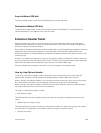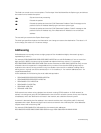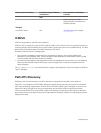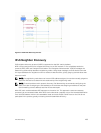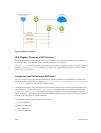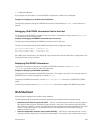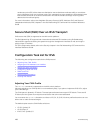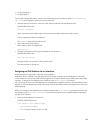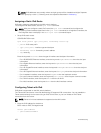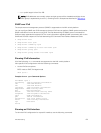
Feature and Functionality Dell Networking OS Release
Introduction
Documentation and Chapter
Location
MXL
Multicast IPv6 in the Dell
Networking OS Command Line
Reference Guide.
IPv6 QoS
trust DSCP values N/A IPv6 Multicast in this chapter
ICMPv6
ICMPv6 is supported on the MXL switch platform.
ICMP for IPv6 combines the roles of ICMP, IGMP and ARP in IPv4. Similar to IPv4, it provides functions for
reporting delivery and forwarding errors, and provides a simple echo service for troubleshooting. The Dell
Networking OS implementation of ICMPv6 is based on RFC 4443.
Generally, ICMPv6 uses two message types:
• Error reporting messages indicate when the forwarding or delivery of the packet failed at the
destination or intermediate node. These messages include Destination Unreachable, Packet Too Big,
Time Exceeded and Parameter Problem messages.
• Informational messages provide diagnostic functions and additional host functions, such as Neighbor
Discovery and Multicast Listener Discovery. These messages also include Echo Request and Echo
Reply messages.
The ping and traceroute commands extend to support IPv6 addresses. These commands use ICMPv6
Type-2 messages.
Path MTU Discovery
IPv6 path maximum transmission unit (MTU) discovery is supported on the MXL switch platform.
Path MTU, in accordance with RFC 1981, defines the largest packet size that can traverse a transmission
path without suffering fragmentation. Path MTU for IPv6 uses ICMPv6 Type-2 messages to discover the
largest MTU along the path from source to destination and avoid the need to fragment the packet.
The recommended MTU for IPv6 is 1280. Greater MTU settings increase processing efficiency because
each packet carries more data while protocol overheads (for example, headers) or underlying per-packet
delays remain fixed.
464
IPv6 Addressing






